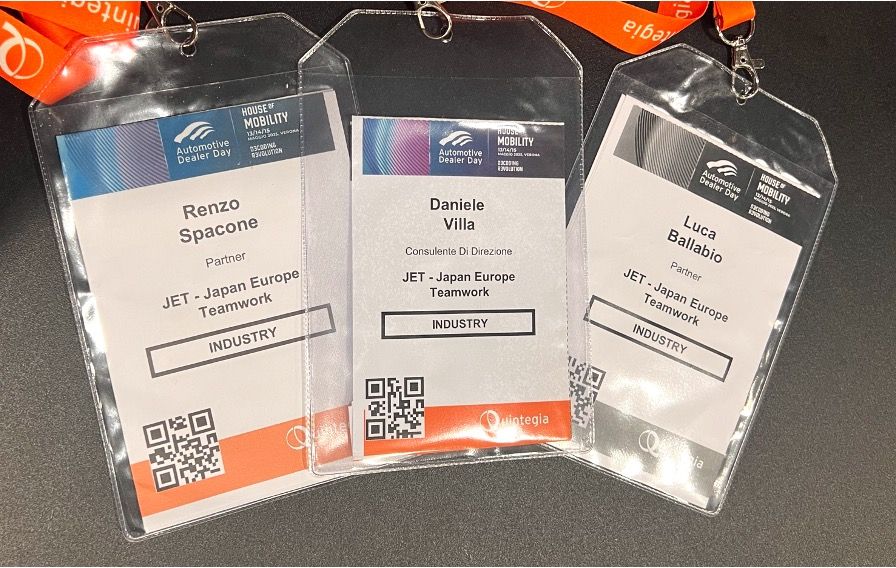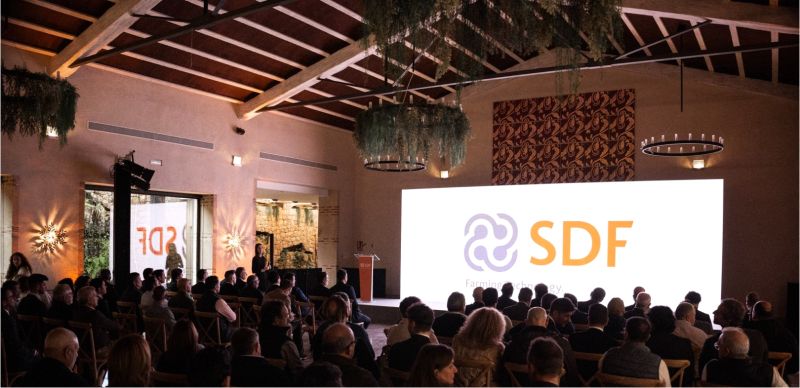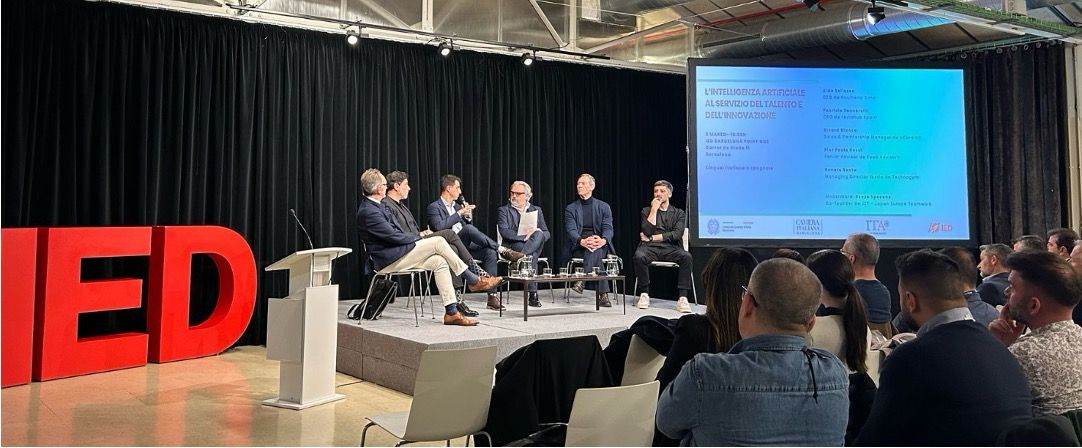Please Don’t Change Anything

According to a popular Italian saying, “if we want things to stay as they are, things will have to change”. It can be applied to many companies and organizations. When asked about the need to change, almost everyone replies affirmatively. Are they all sincere?
Change is uncomfortable, regardless it is for better or – frequently – to grant continuity. To make it (well), it’s necessary to engage people and make them aware of why they are part of an organization and what is the reason for its existence; it implies an effort to be (really) open – and listen – to unconventional points of view.
A hierarchical approach is much easier, but it works in the army, or in the endless bureaucracy of some public bodies, not in the increasingly dynamic scenario we live in. The involvement of resources is required to replace yes-men with a genuinely committed team.
When pursuing the improvement, companies apply techniques and methods aimed to modify behaviours – the Deming cycle is possibly the most famous – and their effectiveness relies on consistency, sequence, mindset. This last factor, particularly, is not available in the market, it has to be built internally. The reason why many PDCA activities fail is maybe the way people perceive the company’s mission (the “why”), which leads to misalignments.
Self-confidence, the hurry for getting to concrete solutions, authoritarian attitudes often lead to give the DO phase excessive importance – to the detriment of Plan, Check and Act – paying less attention to the design, the analysis and – thus – the explanation and engagement. Frequently, the result is frustrating, with a waste of time, energies, investments, motivation.
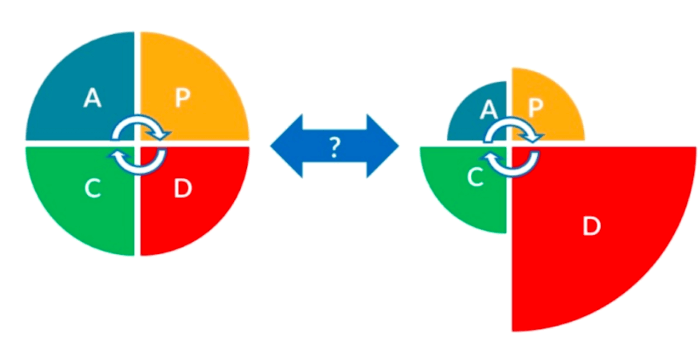
It happens in organizations where topics are taken for granted. A top-down approach fosters the immobility, the lack of awareness drives to a wait-and-see attitude: these risks can’t be faced in an everchanging scenario. There is little attention on how the PDCA concept is understood at every level of an organization: the way it is spread may translate it in a boomerang (Please Don’t Change Anything).
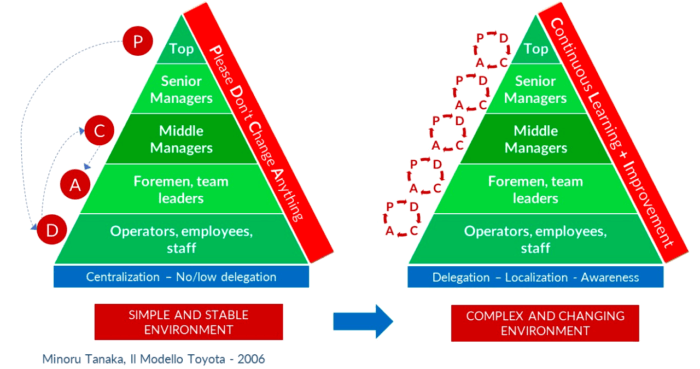
This is overcome where PDCA is a synonym of doing business or “company spirit”, with a continuous iteration and sharing of decisions, where the exchange between layers, functions, levels is a basic ingredient of the decision making. Operationally, these practices start from genuinely aware and engaged resources: for instance, at Toyota we find T-type people, a concept according to which the vertical stroke means that employees must intensify and deepen what they do, while the horizontal one means that they must learn from other jobs/functions (“Lessons from Toyota’s Long Drive”, Thomas A. Stewart and Anand P. Raman, HBR, July–August 2007). It’s a long and expensive process, that goes against to the employee turnover – actually very low in Japan – and doesn’t pay attention to the anxiety for short-term results. On the contrary, it promotes a consistent and robust cultural growth, enables sustainability and cost reduction, makes quality an inherent element of the company’s philosophy.
A comparison between the engineering cultures that traditionally are associated to General Motors and Toyota provides a clear example:
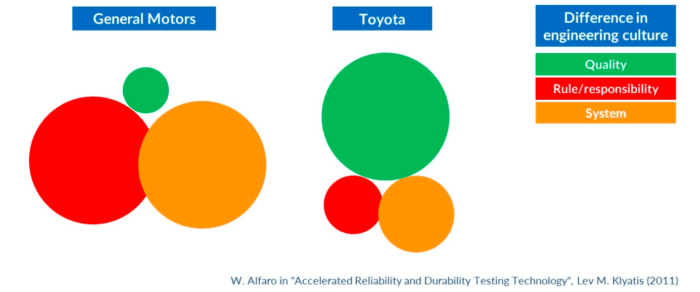
In order to get to a substantial change of the approach and behaviours, a new strategic thinking is needed, together with the genuine determination of questioning long-standing practices, even if they enabled excellent performances in the recent past.
Resistance and reluctance are strong. To foster a positive mood by involving, engaging and making people aware, methods are not as effective as they appear in manuals, if we are not able to tackle and anticipate roadblocks.
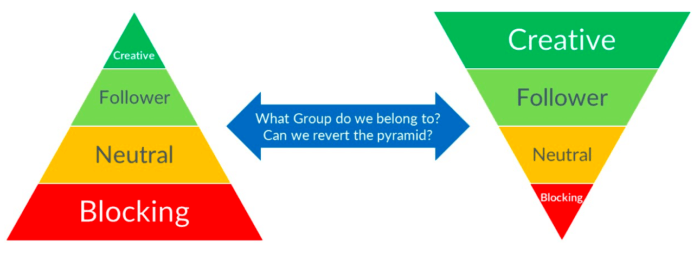
In an era that asks everybody to be increasingly dynamic, it is fundamental to reverse the conformism pyramid and develop a different mindset. In this landscape, we discover that bringing out weak points that undermine the growth, through sharing and engagement, not only does not represent a risk, but, on the opposite, states a new starting point that firstly strengthens company’s values (and, thus, the awareness) and secondly performances/results. “I know that I know nothing”: being aware of it gives strength to the strategic view, fosters the long-run thinking. It is the consciousness that knowledge is not definitive and the virtuous circle needs to be constantly fed. When projected on the team, all this stimulates proactive behaviours and, at the same time, promotes and retains the best talents.
In this way, the PDCA dynamics will find a concrete and genuine fulfillment. Change is a must.
PDCA: Please Do Change the Attitude
Automotive Dealer Day 2025 has been an opportunity to feel the flavour of the automotive sector. Every year, useful insights and inspirations… Read more
We are proud to have been invited by SDF Ibérica at the Annual Dealer Meeting of the Spanish network, designed to… Read more
Innovation, opportunities, future: AI is setting ever new standards that mean huge improvements for managing talent and innovation, but also big risks… Read more

